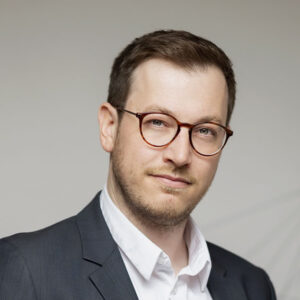The city of Düsseldorf has set itself the goal of becoming climate-neutral by 2035. To achieve this, the public utilities authority Stadtwerke Düsseldorf and public transport operator Rheinbahn are investing in hydrogen technology. In combination with battery-electric mobility, this will make an important contribution towards achieving the city's climate protection goals. Lord Mayor Dr. Stephan Keller is pleased that the city's public utility companies are jointly gaining momentum in this area. They will be cooperating with the seasoned hydrogen refuelling station operator H2 MOBILITY Deutschland.
In this joint endeavour, each partner is contributing its strengths to the cause of climate protection: Stadtwerke Düsseldorf is investing in a one megawatt (MW) capacity electrolyser in order to be able to produce green hydrogen on site in the future. Rheinbahn is procuring 20 fuel cell buses as part of the conversion of its fleet to climate-friendly drives. The first ten will be delivered in the coming weeks, the remaining ten are currently in the ordering process. In future, these buses will be refuelled at a filling station from the partner company H2 MOBILITY on the Stadtwerke premises at Höherweg in Flingern. “We are firmly committed to implementing our strategy for achieving our climate protection goals and steadily improving the quality of life at the business location Düsseldorf. The investment in hydrogen technology is another important step towards achieving this goal. By 2030, we are aiming to invest two billion euros in the development of our city and our company,” says Julien Mounier, Chairman of the Board of Stadtwerke Düsseldorf.
The starting point for the joint engagement of the two municipal companies was the signing of the corresponding contracts with H2 MOBILITY. With the funding commitment from the Federal Ministry for Digital and Transport (Bundesministerium für Digitales und Verkehr), the companies decided to invest in the electrolyser required for the production of hydrogen. In the coming weeks, the first buses with fuel cell technology are to go into test operation at Rheinbahn. The new hydrogen filling station is to be built on the Stadtwerke premises by mid-2024 at the latest. Until then, the Rheinbahn buses will refuel with hydrogen at Oerschbachstrasse in Düsseldorf-Reisholz.
Düsseldorf’s Lord Mayor Dr. Stephan Keller (CDU) welcomes the investments of the city’s municipal companies and the resulting cooperation as a milestone on the way to climate neutrality in 2035 and the mobility transition: “This is a good example that climate neutrality in 2035, which is exactly what we want to achieve, is a realistic goal. I am delighted that Rheinbahn and Stadtwerke are working together to drive forward climate protection in the transport sector. Buses and trams are the backbone for changing mobility behaviour. But in addition to the expansion, we also need an optimisation of the drives. The use of battery-electric and fuel cell buses in the Rheinbahn fleet is a gain for climate protection, for air pollution control and for modern mobility in the state capital of Düsseldorf. That is why we are looking forward to supporting this project.”
Alongside battery-electric mobility, hydrogen has a key role to play in the mobility transition. In the future, Rheinbahn will rely on a mix of battery-electric mobility and fuel cells. Both technologies reduce emissions such as nitrogen oxides, CO2 and noise. The project is therefore making a significant contribution to climate protection and overall livability in our city.
Rheinbahn will receive the first ten buses in the coming weeks and will be preparing them for test operation. In the second quarter of 2023, the state-of-the-art buses are to be used on the 732 line. “This will enable us to gather extensive knowledge for the future use of this new technology,” says Klaus Klar, Chairman of the Executive Board and Director of Labour at Rheinbahn, and emphasises: “Converting our bus fleet to zero-emission drives is a top priority task. 2035 is not far away in view of the climate protection challenges. That’s why we need strong partners like the City of Düsseldorf, Stadtwerke Düsseldorf, H2 MOBILITY and Rheinbahn. In addition to battery-electric vehicles, we also regard fuel cell technology as an important pillar of the shift in drive systems. In this way, we are supporting the city’s climate goals and making our contribution to improving air quality in Düsseldorf and the surrounding region.”
Stadtwerke Düsseldorf plans to produce the hydrogen required for the “SWDhydrogenium” project on its premises at Höherweg in Flingern. The electricity which will be used for this purpose is green electricity produced by the waste incineration plant. The refuse incinerated there has a so-called biogenic origin of 50 percent, which puts it on a par with renewable energies.
The project is being funded by the Federal Ministry of Digital and Transport Affairs with a total amount of around 1.2 million euros as part of the National Innovation Programme Hydrogen and Fuel Cell Technology. The funding guideline is coordinated by NOW GmbH and implemented by Project Management Jülich (PtJ). The total costs for the realisation of the project are approximately three million euros.
Julien Mounier: “We are pleased that with this project we can demonstrate how the cooperation between two city municipal companies enables innovation and climate protection to be experienced on a local level. In addition to the expansion of the charging station infrastructure, this is another example of how Stadtwerke Düsseldorf is expanding infrastructures in such a way that the mobility sector can also make its contribution towards achieving the 2035 climate protection target. And: hydrogen will also play a role in the energy industry. With this project, we can gather initial experience that we will also need for achieving the decarbonisation of the energy supply industry.”
Source: Original announcement of the Stadtwerke Düsseldorf AG

